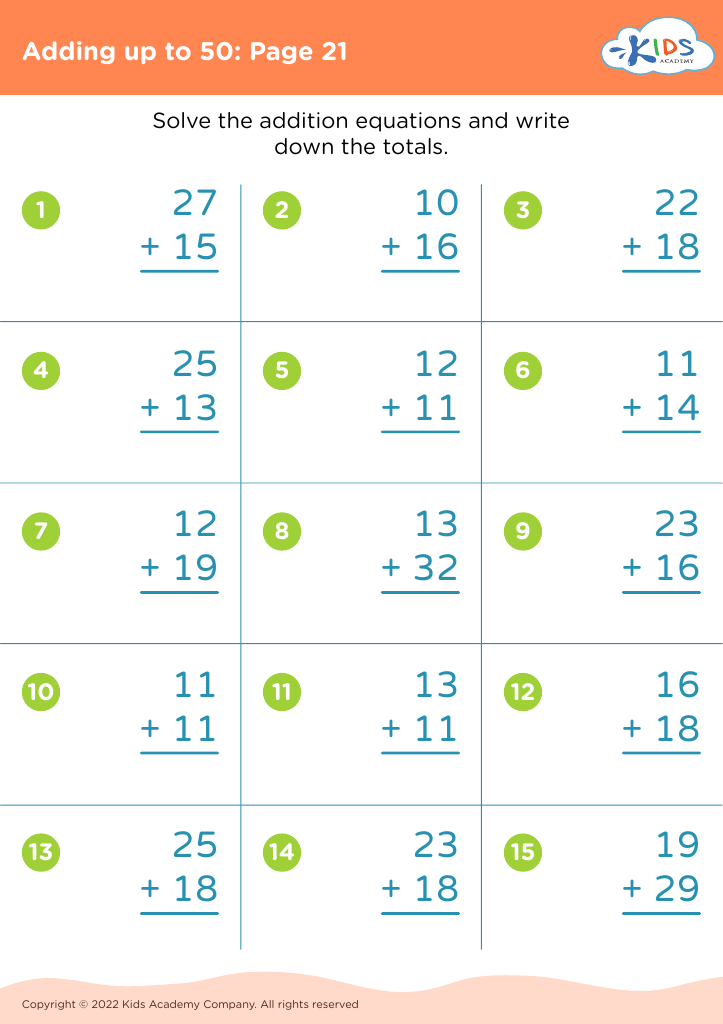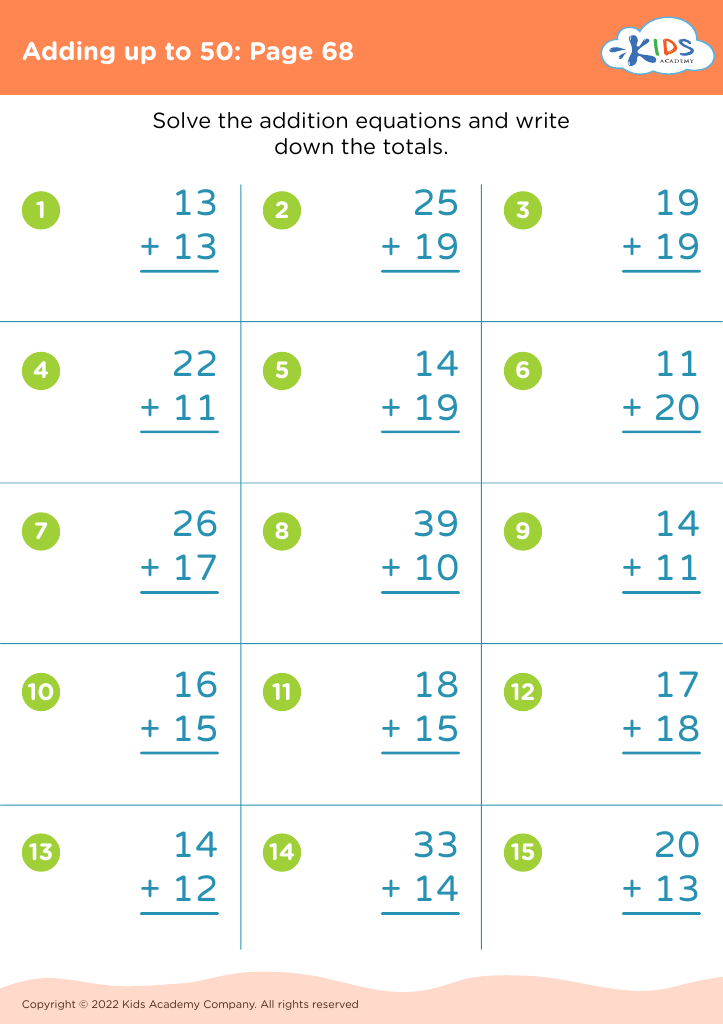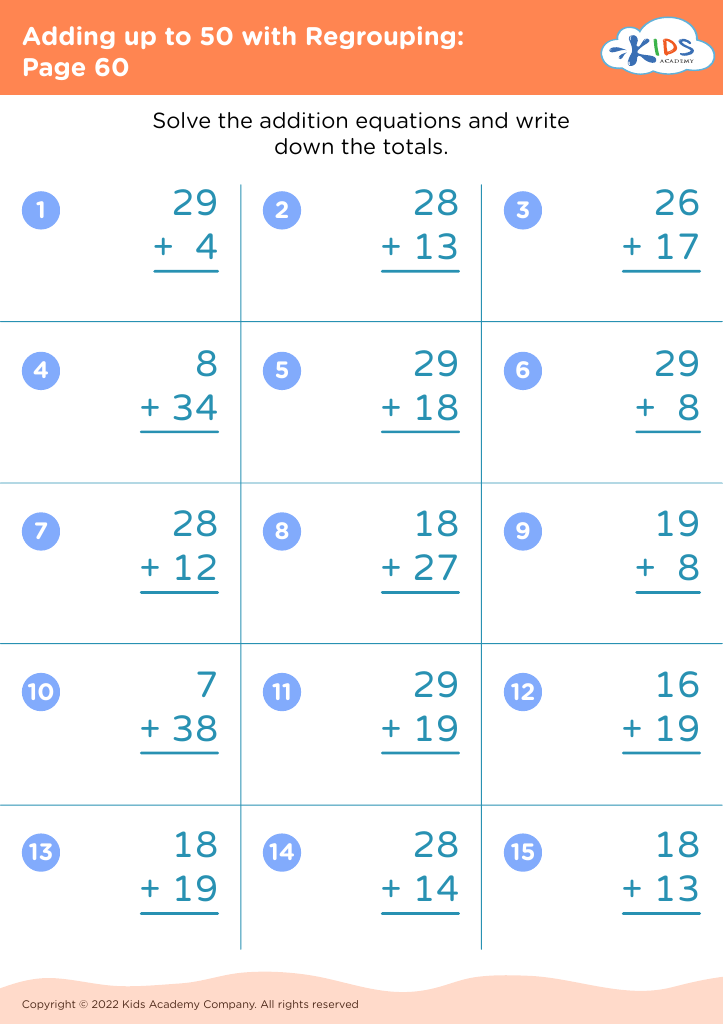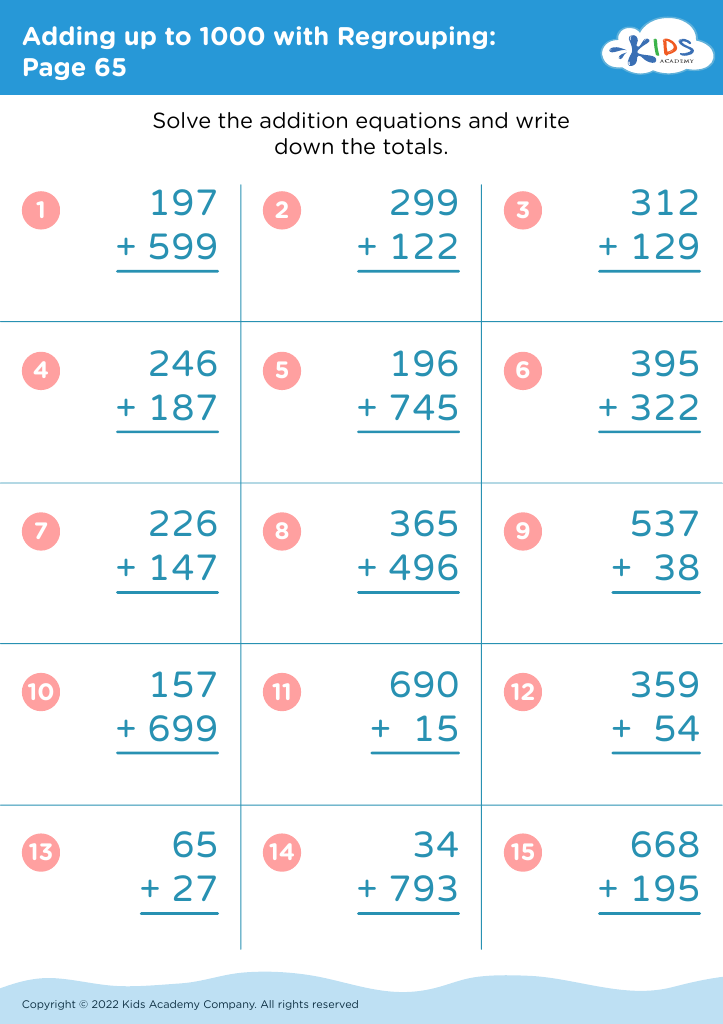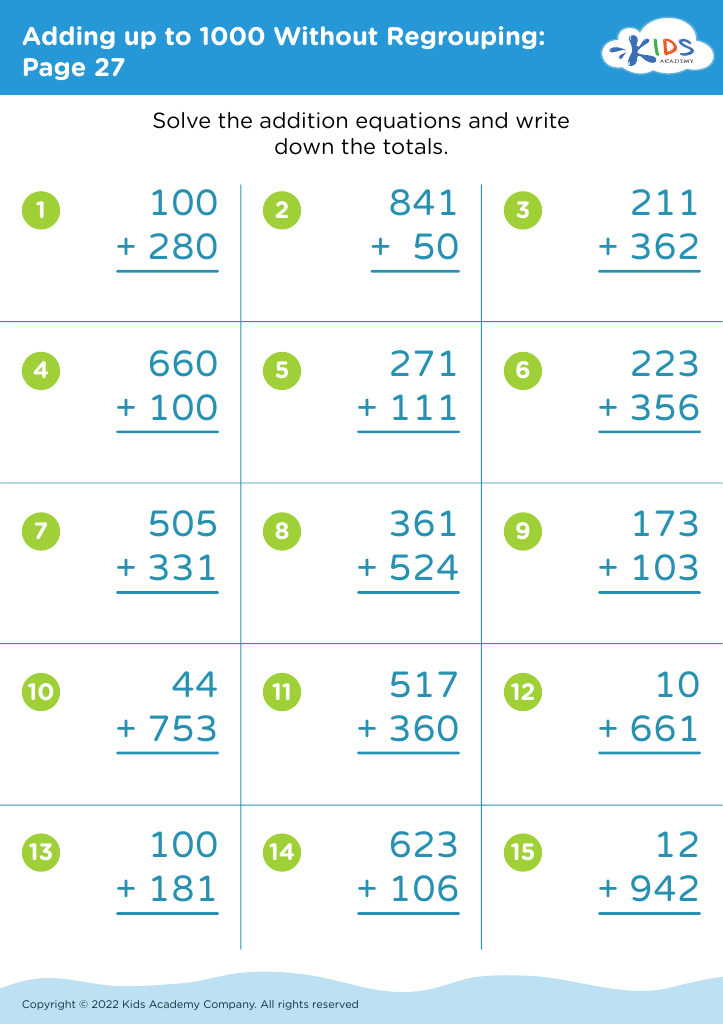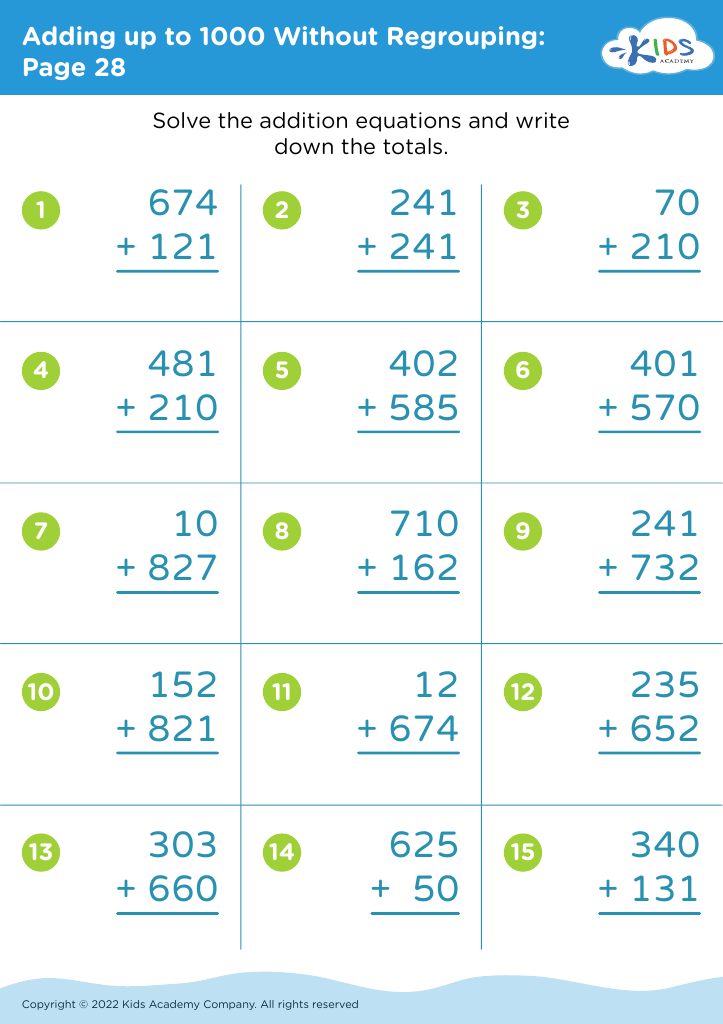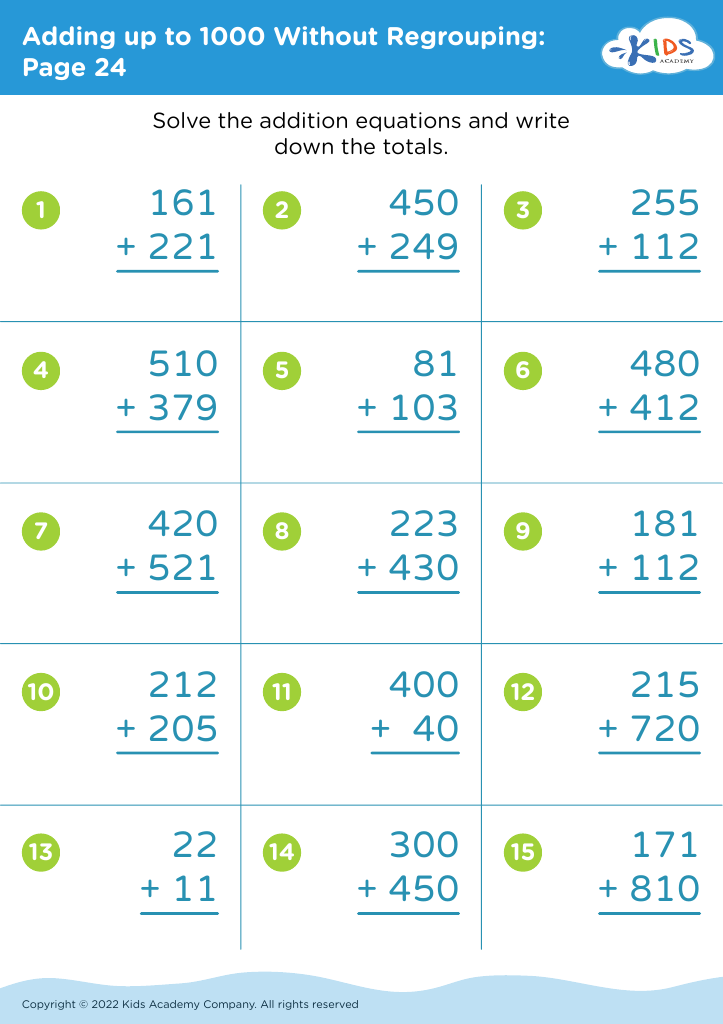Simplifying Fractions Addition Worksheets for Ages 6-8
18 filtered results
-
From - To
Boost your child's math skills with our "Simplifying Fractions Addition Worksheets for Ages 6-8". Designed specifically for young learners, these engaging and colorful worksheets make it easy and fun to understand fraction addition. Each sheet presents clear, step-by-step exercises, helping kids visualize and simplify fractions effectively. As students work through these tasks, they'll build confidence and strengthen their analytical abilities. Ideal for both classroom and home use, our printable worksheets are perfect for consolidating learning and providing extra practice. Set your child on a successful math journey with our expertly crafted resources!
Simplifying fractions addition is a fundamental math skill that lays the groundwork for more advanced arithmetic and critical thinking abilities in children aged 6-8. At this early stage, developing a solid understanding of fractions is crucial as it enables children to grasp the concept of parts of a whole, which is applicable in real-life situations such as sharing, cooking, and understanding time.
First, mastering fraction addition helps improve number sense, an essential component of overall mathematical competency. Kids learn how to find common denominators, perform the addition, and then reduce the fractions, reinforcing their arithmetic operations and problem-solving skills.
Second, simplifying fractions aids cognitive development and boosts confidence. Struggling with math can be discouraging for children, but a clear comprehension of fractions enhances their self-esteem and motivates them to tackle other challenges in math and beyond.
Lastly, early mastery of this skill prepares children for more complex math topics such as multiplication and division of fractions, algebra, and geometry, which they will encounter in later grades. Simplifying fractions early on allows for a smoother transition to these advanced concepts, ensuring continued academic success and a positive attitude towards learning mathematics. For these reasons, parents and teachers should give attention to simplifying fractions addition in these formative years.

